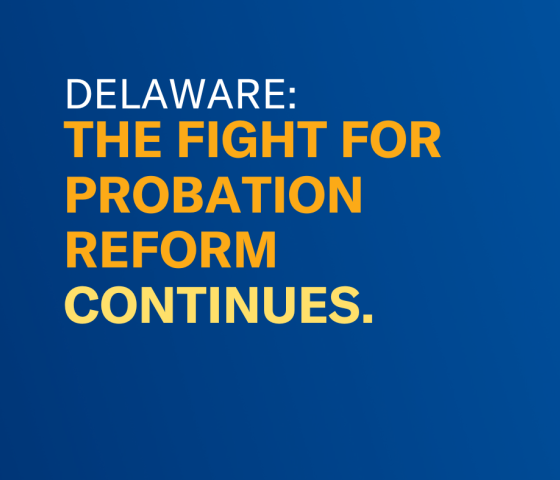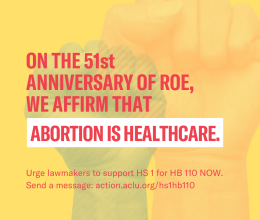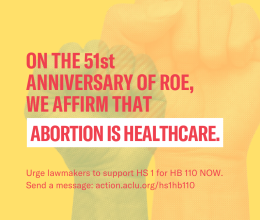PRESS RELEASE: Thursday, December 9, 2021
CONTACT:
Matt Bittle, Public Affairs Manager, PPDE, [email protected]
Morgan Kelly, Communications Director, ACLU-DE, [email protected]
Reproductive Health Care Access the Topic of Discussion at Virtual Event Featuring Local and National Advocates
WILMINGTON—Local and national leaders in the reproductive rights field came together Thursday night to discuss the state of abortion access in the United States, with special focus on Delaware.
Representatives from ACLU National, ACLU of Delaware, Planned Parenthood of Delaware, Black Mothers in Power, and Delaware NOW (National Organization for Women) took part in the hour long panel event, highlighting the threats reproductive health care access faces, ways Delaware can expand its laws in this field, and steps to protect and expand reproductive rights and access to reproductive health care for all of Delaware’s communities.
The webinar comes just eight days after the U.S. Supreme Court heard arguments on a 15-week abortion ban from Mississippi and a few months after a Texas law that outlaws abortion after six weeks — before most people know they are pregnant — took effect. With the court holding a conservative majority, the landmark 1973 Roe v. Wade decision guaranteeing a right to abortion is at serious risk.
Per an estimate from leading reproductive rights nonprofit the Guttmacher Institute, 26 states representing more than 36 million people — including almost half of the women of reproductive age (18-49) in the United States — could prohibit abortion if Roe is struck down or even weakened. That means tens of millions of people would suddenly be stripped of what has been a constitutional right for half a century.
“Make no mistake: Anti-abortion politicians will try to push a nationwide ban,” cautioned Lorie Chaiten of the ACLU’s Reproductive Freedom Project.
While the outlook is indeed dire across the country, some states have taken significant steps to secure access to critical reproductive health care. Recognizing that reproductive services are fundamental to health care, Delaware lawmakers have in recent years acted to protect and expand access to those services. In 2017, fearing the impact new conservative justices appointed by President Donald Trump could have, the General Assembly codified Roe v. Wade. Earlier this year, legislators repealed outdated provisions in state law that criminalized abortion but had not been applied in at least half a century because they were superseded by Roe v. Wade.
Advocates Thursday spoke of potential changes to federal and state laws, such as passing the Women's Health Protection Act in Congress, making it easier to access abortion medication, and expanding child care.
Noting that Black mothers are several times more likely to die during childbirth than their white counterparts, Black Mothers in Power founder Shané Darby challenged the audience to act now to expand reproductive rights.
“How do we break those barriers that exist, and how do we center the most marginalized groups of people?” Darby said.
Nick Beard, chair of Delaware NOW’s Reproductive Task Force, discussed obstacles that exist for minors seeking abortions in Delaware, pointing to research exploring the negative impacts.
While Delaware has recently put protections in place, these rights still fall under attack. Some legislators have consistently attempted to pass abortion restrictions, while the city of Seaford is set to vote Tuesday on an ordinance that would make it more difficult for Planned Parenthood of Delaware to provide abortion services at its new clinic there.
“We thank our legislative champions, advocates, and other elected officials who recognize the importance of comprehensive sexual and reproductive health services and are hopeful Delaware will continue moving forward in this regard,” Planned Parenthood of Delaware President and CEO Ruth Lytle-Barnaby said. “While the state has made important strides in guaranteeing a person's bodily autonomy, there are still laws that could be changed. Allowing Medicaid to cover abortions, authorizing medical professionals like registered nurses and physician assistants to perform these procedures, and offering more legal protections for family planning clinics and patients would be very beneficial. We look forward to working with our allies to make Delaware a safe haven for abortion in these trying times.”
A recording of the event can be found online here: https://www.facebook.com/ACLUDelaware/videos/580322366390559/.









